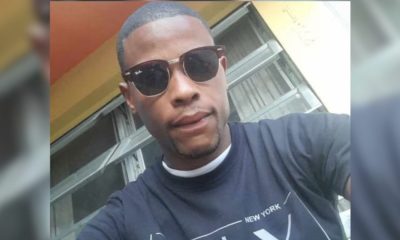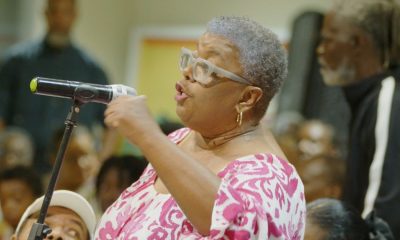Advertisement

Advertisement

THE BAHAMAS – On this day in Bahamian history – In 1790, Bethel’s Meeting House now known as Bethel Baptist Church was founded by slaves Prince Williams and Samuel Scriven.
It was called a meeting house since at the time the law forbade black men from holding positions of leadership in a church. The church was built on Meeting Street in Delancy Town in an undeveloped area and was the first church built outside the town of Nassau.
Although credited with founding the church, Williams did not serve as its first pastor due to his marriage history, instead, Sambo Scriven served as the first pastor until his death in 1822. Williams would later succeed him.
Then in 1834, the emancipation act of 1833 came into effect in the British empire.
In the colony of The Bahamas, the act only affected those in bondage under the age of six. Everyone else who was called a slave was now classified as an apprentice and required to work 40 hours per week without pay as compensation to their former owners.
This was known as the apprenticeship system and this period was to last up to six years but was shortened to four.
All enslaved people were legally freed on August 1st, 1838 and the British government awarded 20 million pounds to slave owners across the British empire for their loss of property.
Then in 1835, one year after the emancipation act came into effect, the friendly society was formed in Grants Town, New Providence.
At this time, Grants Town was mostly swamp, where liberated africans and now emancipated slaves lived, grew food, and traded amongst each other.
The goal of the organization was to improve the lives of the former enslaved and liberated Africans living in The Bahamas.
Continuing in 1838, the apprenticeship period ended in The Bahamas which gave full freedom to all persons legally held in bondage.
Then in 1891, Asa hubert Pritchard was born in New Providence to William and Margaret Pritchard.
Pritchard was a businessman, politician, and member of the House of Assembly representing Eleuthera.
He became speaker of the house, in 1946 and served there until 1962. As a businessman, he opened an English-style tobacco store in 1929 that is now the John Bull Group of Companies.
He was elected Head of The Bahamas Chamber of Commerce from 1942 to 1944 and was the first president of the Kiwanis Club of Nassau in 1963. In 1965, Pritchard also received the honor of knighthood for Public Services in The Bahamas.
Today a business on Robinson Road & Claridge Road on carries his name. Pritchard died in Nassau, on March 18th 1990 at the age of 98.
Then in 1973, Milo Boughton Butler was sworn in as governor-general of The Bahamas. He succeeded John Warburton Paul becoming the first Bahamian governor-general and served from 1973 to 1979, when he passed away.
Before becoming governor-general, Butler had a career in politics that spanned 37 years. He was first elected to the House of Assembly in 1937 in a by-election representing the western district of New Providence.
He also is known for his role on Black Tuesday when he threw the speaker’s hourglass outside parliament. As a cabinet minister, held a diverse portfolio including health and welfare, labor, agriculture and fisheries, as well as minister without portfolio.
And finally in 2014, a state-recognized funeral was held for Edmund Moxey.
Born on Ragged Island in 1933, Moxey was a former member of parliament who made significant changes as the MP for Coconut Grove and as a senator. He was also a farmer, musician, writer, and activist.
He also helped to usher in majority rule in 1967, serving as parliamentary secretary for community development, creating Jumbey village along with the Jumbey festival and documented 50 Bahamian songs along with Timothy Gibson.
Throughout his career, he faced many struggles. He joined the PLP in 1950 before leaving in 1977 after a falling out with then Prime Minister Lynden Pindling.
Moxey was remembered as a freedom fighter, someone who would not let the rules of politics keep him away from pursuing his dreams for the people.

 National1 day ago
National1 day ago
 National8 hours ago
National8 hours ago
 Sports1 day ago
Sports1 day ago
 Court1 day ago
Court1 day ago
 Court2 days ago
Court2 days ago
 National2 days ago
National2 days ago
 Sports2 days ago
Sports2 days ago
 Court2 days ago
Court2 days ago

























